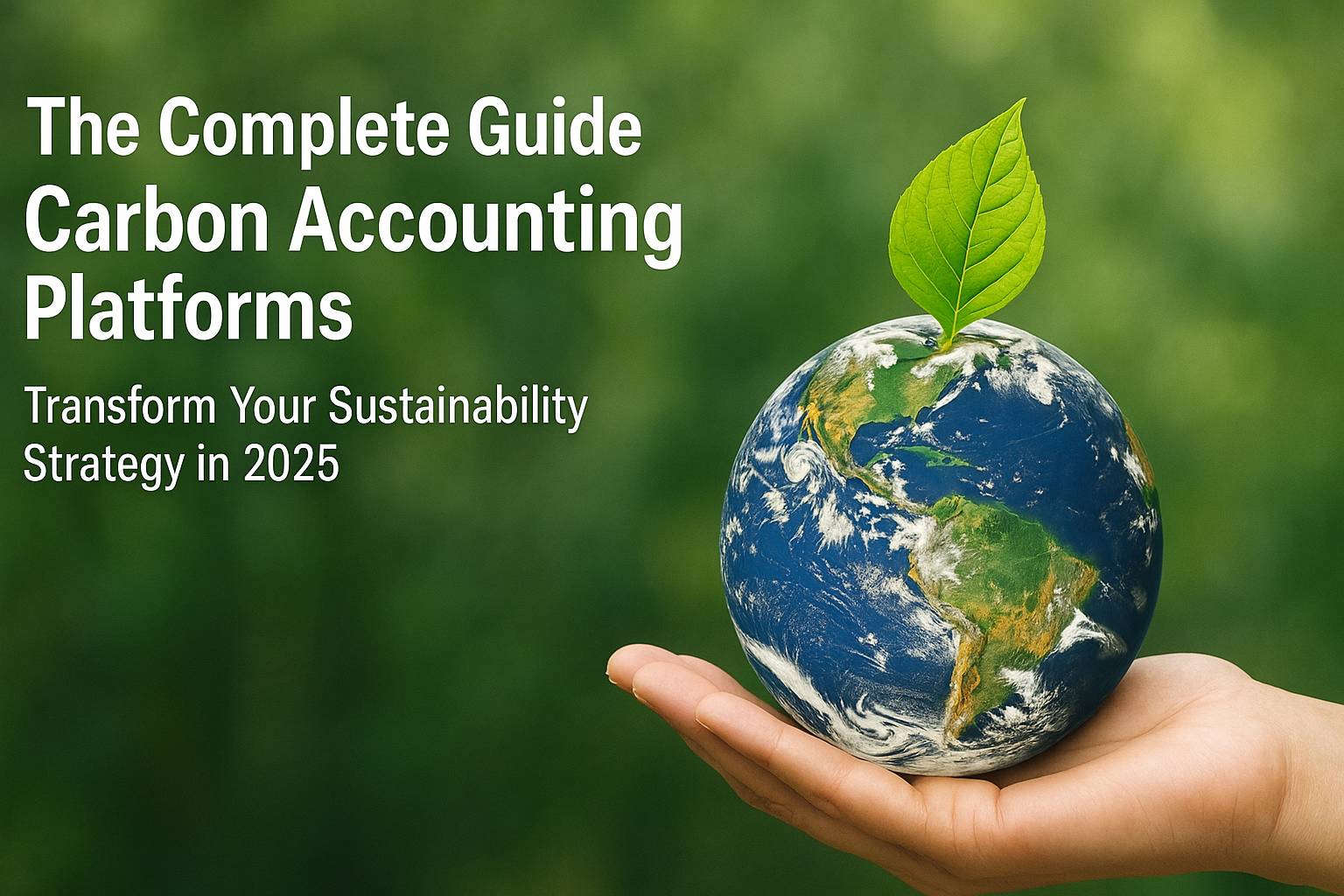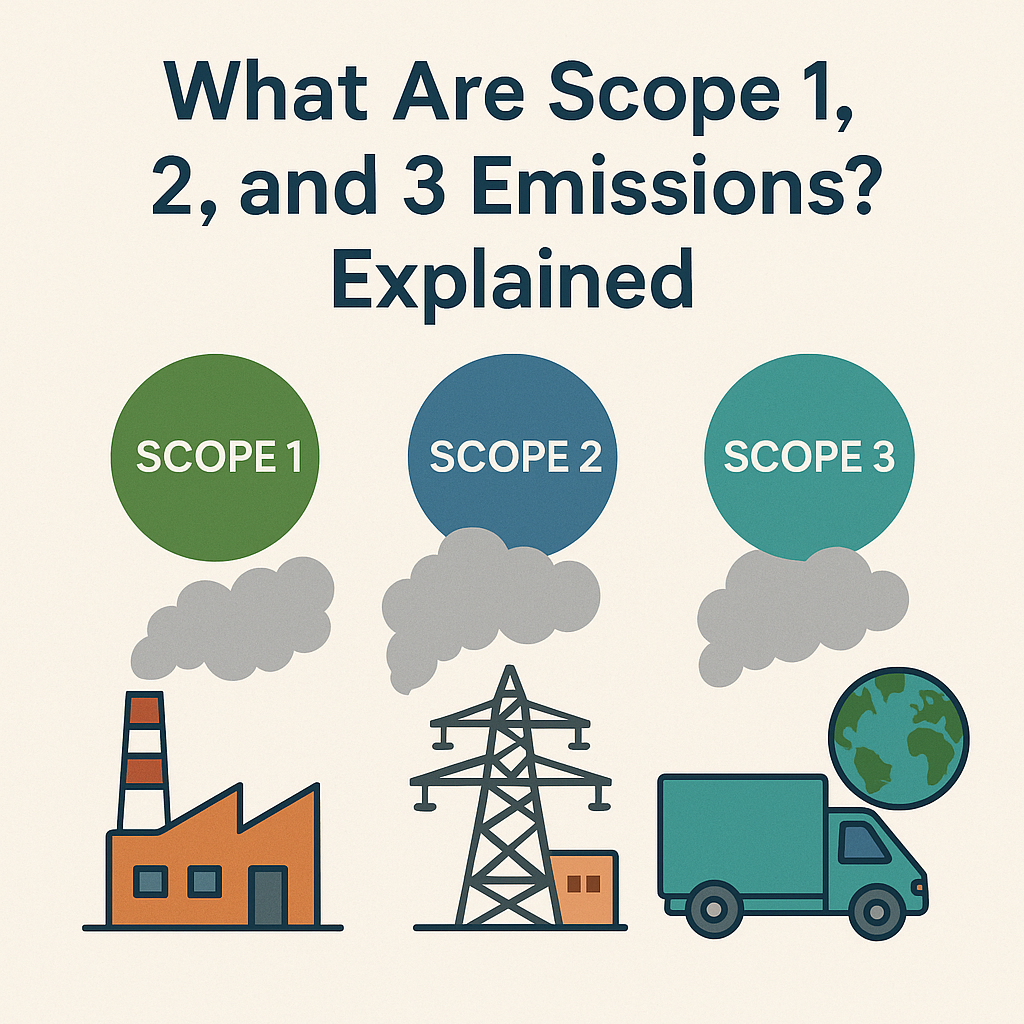In the global battle against climate change, every effort, no matter how small, holds immense significance. Small and Medium Enterprises (SMEs) play a pivotal role in this crusade, despite the challenges they face. Our goal with this article is to provide SMEs with a comprehensive perspective on decarbonisation, inspiring them to take their first steps toward a greener and more sustainable future.
As we embark on this journey together, remember that even the smallest of actions can contribute to a more sustainable world. So, let's dive into the world of decarbonisation for SMEs and explore the challenges, strategies, and tools that will empower you to green your SME's bottom line.
Section 1: Understanding the Challenge
In the realm of Small and Medium Enterprises, understanding decarbonisation is key. SMEs, despite their size, are collectively responsible for a significant share of global carbon emissions. Let's delve into why decarbonisation is critical for SMEs and the complex challenges they face in reducing their carbon footprint.
The Significance of Carbon Emissions for SMEs
SMEs collectively account for approximately 45% of global industrial energy consumption and 40% of total carbon emissions. These emissions stem from various sources within SME operations, including energy-intensive processes, transportation logistics, and supply chain activities.
The Impact on the Environment
Carbon emissions, especially carbon dioxide (CO2) and methane (CH4), are the primary contributors to climate change. With atmospheric CO2 levels at unprecedented highs, global temperatures are on the rise, leading to more frequent extreme weather events, rising sea levels, and disruptions to ecosystems. While individual SME emissions may appear modest, their cumulative effect is substantial.
Challenges in Decarbonisation
SMEs face unique challenges on the path to decarbonisation:
- Limited Budgets: SMEs often operate with tight budgets, making it difficult to invest in sustainable technologies and practices.
- Lack of Expertise: Many SMEs lack in-house sustainability expertise, which is crucial for effective decarbonisation.
- Time Constraints: SMEs, often with lean teams, struggle to balance daily operations with sustainability efforts.
- Regulatory Complexity: Adapting to evolving environmental regulations demands ongoing attention and resources.
- Supply Chain Sustainability: Ensuring sustainability across complex supply chains requires effective coordination with diverse suppliers.
- Access to Capital: SMEs may face difficulties accessing funding for sustainability projects from traditional sources.

Section 2: How to Start the Decarbonisation Journey
Initiating the decarbonisation journey may seem daunting, but it's essential to start somewhere. In this section, we provide a pragmatic roadmap for SMEs to begin their sustainability efforts:
Assessment
Begin by understanding your current carbon footprint. Conduct a comprehensive carbon audit to identify emissions sources within your operations.
- Hire an environmental consultant or use carbon assessment tools.
- Document energy consumption, emissions sources, and waste generation.
Set Goals
Establish clear and achievable sustainability goals. Define specific targets for emission reductions and timeline benchmarks.
- Define specific emission reduction targets, e.g., reduce energy use by 20% in two years.
- Set milestones for tracking progress.
Engage Stakeholders
Involve your employees, suppliers, and customers in your sustainability journey. Communication and collaboration are key to building a shared commitment to decarbonisation.
- Create employee sustainability awareness programs.
- Collaborate with suppliers to source eco-friendly materials.
- Communicate sustainability efforts to customers through marketing channels.
Create a Sustainability Team
Appoint individuals within your organisation or consider outsourcing sustainability management to experts. Having a dedicated team or point person can streamline efforts.
- Appoint a Sustainability Officer or Coordinator.
- Form a cross-functional sustainability team.
Budget and Resources
Allocate financial and human resources for sustainability initiatives. Prioritise investments based on their potential impact on emissions reduction.
- Create a sustainability budget.
- Allocate staff time for sustainability projects.
Baseline Measurement
Establish a baseline for emissions measurement. Regularly track and report your progress to monitor the effectiveness of your efforts.
- Use software or spreadsheets to track emissions data.
- Report progress in sustainability reports and to stakeholders.
Identify Quick Wins
Begin with low-hanging fruit—quick and cost-effective measures that yield immediate results. These wins build momentum and demonstrate your commitment to sustainability.
- Replace inefficient lighting with energy-efficient LEDs.
- Implement energy-saving practices, like turning off equipment when not in use.
Compliance Check
Stay informed about relevant environmental regulations. Ensure your operations align with local and international emission standards to avoid legal repercussions.
- Monitor changes in environmental regulations.
- Consult with legal experts to ensure compliance.
Section 3: Key Decarbonisation Strategies for SMEs
Now that we've laid the foundation for your decarbonisation journey, it's time to explore the strategies that can help SMEs make meaningful reductions in their carbon footprint. These strategies are tailored to the unique challenges and opportunities that SMEs face:
Energy Efficiency
Improving energy efficiency is a cost-effective way to reduce emissions.
- Upgrade lighting systems to energy-efficient LEDs, reducing energy consumption by up to 75%.
- Implement smart HVAC controls to optimise heating and cooling, saving energy and reducing emissions.
Renewable Energy Adoption for Resource-Constrained SMEs (Budget-friendly approaches)
Transitioning to renewable energy is a sustainable choice that can also lead to long-term cost savings.
- Join shared solar arrays for affordable access to renewable energy.
- Explore partnerships with local microgrid providers for cost-effective renewable energy solutions.
- Prioritise energy-efficient upgrades to reduce consumption and make renewables more affordable.
- Seek subsidies, grants, or low-interest loans from government or NGOs to offset costs.
- Rent solar panels or equipment with minimal upfront expenses.
Supply Chain Optimisation
Streamlining supply chain operations can reduce emissions throughout the value chain.
- Collaborate with suppliers to reduce transportation-related emissions by optimising routes and using more fuel-efficient vehicles.
- Embrace just-in-time inventory practices to minimise waste and reduce the carbon footprint of storage and transportation.
Green Procurement
Making environmentally conscious procurement decisions can have a ripple effect on sustainability.
- Source products and materials with eco-friendly certifications, such as Energy Star or Fair Trade.
- Prioritise suppliers committed to sustainable practices, ensuring that the entire supply chain aligns with green principles.
Waste Reduction and Recycling
Minimising waste and increasing recycling rates can significantly reduce carbon emissions.
- Implement waste segregation and recycling programs to divert materials from landfills.
- Reduce packaging and opt for reusable materials, lowering the environmental impact of product packaging.
Employee Engagement
Engaging employees in sustainability efforts can lead to innovative solutions and a culture of responsibility.
- Educate and involve employees in sustainability initiatives through training and awareness campaigns.
- Recognise and reward eco-friendly behavior, fostering a sense of shared responsibility for sustainability goals.
Carbon Offsetting
Participating in carbon offset programs can help SMEs balance their emissions by supporting environmental projects.
- Invest in reforestation or renewable energy projects to offset carbon emissions.
- Purchase carbon offsets to neutralise emissions, supporting projects that capture or reduce greenhouse gases.
If you are ready to take your sustainability efforts to the next level, you can try out Carbon Analytics’ supply chain assessment tools for free and get certified by experts. Start you free trial!
Section 4: Looking to the Future: Digital Tools for Decarbonisation
Small and Medium Enterprises (SMEs) must stay forward-focused to remain competitive and environmentally responsible. This section delves into the role of digital sustainability tools like Carbon Analytics in the future of SME decarbonisation:
Digital Sustainability Tools
The advent of digital platforms and tools has revolutionised how SMEs approach sustainability and decarbonisation. Solutions like Carbon Analytics empower SMEs to:
- Accurately measure their carbon emissions, helping SMEs understand their environmental impact.
- Gain actionable insights from emissions data, identifying areas for improvement and optimisation.
- Streamline the process of reporting emissions to stakeholders and regulatory bodies.
User-Friendly Interface
Digital sustainability tools offer user-friendly interfaces that cater to the specific needs of SMEs. This ease of use makes it accessible for SMEs to navigate the complex landscape of emissions tracking and management.
Cost-Effective Solutions
These tools provide cost-effective options for SMEs to embrace sustainability. By offering affordable subscription models and eliminating the need for extensive in-house expertise, they democratise sustainability efforts.
Continuous Improvement
Digital tools allow SMEs to continually monitor their progress and adapt to changing sustainability goals. They facilitate real-time data analysis, enabling agile decision-making.
Future-Proofing
In a world where sustainability is becoming increasingly central to business success, SMEs that embrace digital sustainability tools are better positioned to adapt to evolving regulations and consumer expectations.
SMEs are not merely participants; they are protagonists in this sustainability epic. As you embark on this quest, remember that every step forward, no matter how small, matters. By embracing sustainability, you're not just securing a brighter future for the planet—you're positioning your SME for enduring success and newfound competitiveness in a world where green values reign supreme.
So, fellow trailblazers of sustainability, set sail on your decarbonisation voyage. The journey may have just begun, but with each eco-conscious choice you make, you chart a course towards a more prosperous and sustainable horizon. The world awaits your sustainable solutions, and your SME has a leading role to play.



